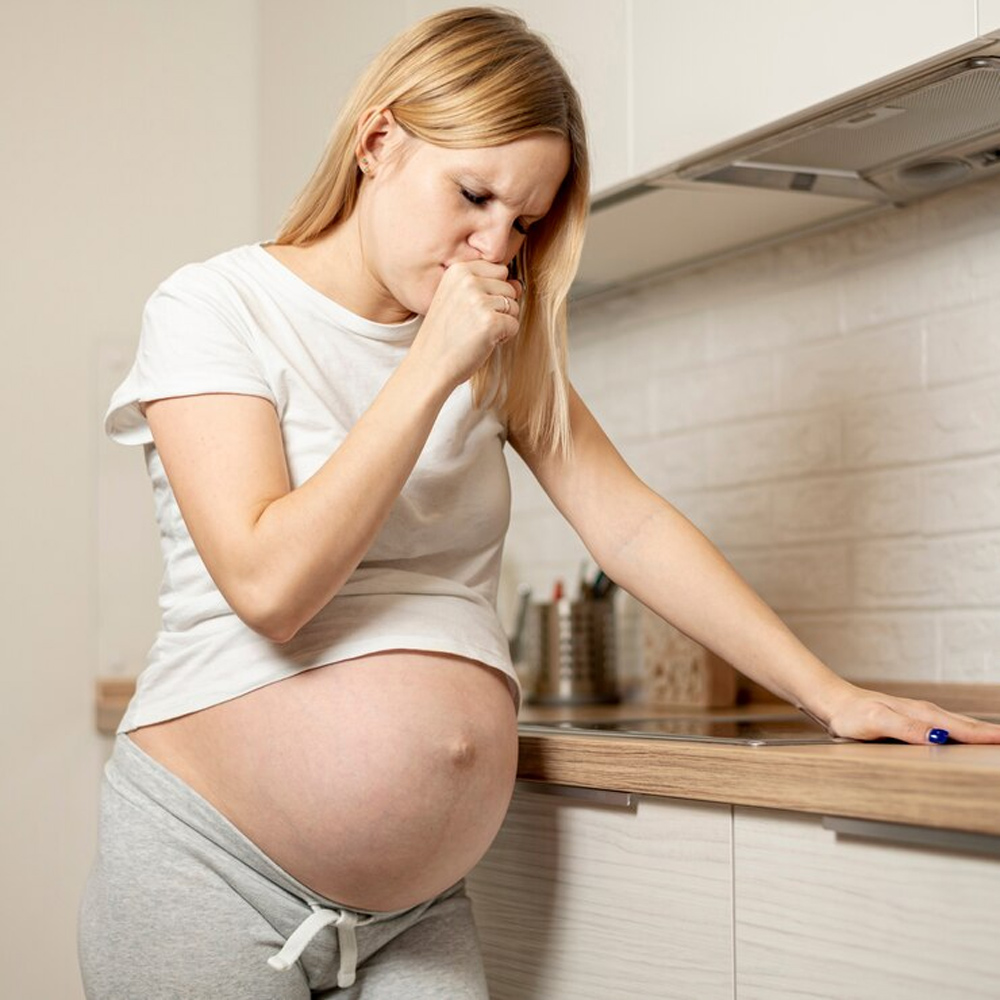
Have you ever wondered how something as simple as breathing can feel like a challenge during pregnancy? For moms-to-be with Chronic Obstructive Pulmonary Disease (COPD), this reality hits close to home. Pregnancy is already a time when your body works overtime, and adding COPD into the mix can make things more complicated, but not unmanageable. With the right care and some practical tips, you can overcome these hurdles and focus on preparing for the arrival of your little one. We spoke to Dr Indrani Salunkhe, Obstetrician and Gynaecologist, Wockhardt Hospitals, Mumbai Central, who explained how you can navigate pregnancy with COPD while keeping both you and your baby healthy.
Table of Content:-
What is Chronic Obstructive Pulmonary Disease?

According to the National Heart, Lung, and Blood Institute (NHLBI), COPD is a condition resulting from damage to the airways or other areas of the lungs. This damage triggers inflammation and other complications that obstruct airflow, making breathing difficult.
During pregnancy, hormonal and physiological changes can exacerbate these symptoms, as the growing uterus pushes against the diaphragm, reducing lung capacity. This makes it harder for the body to maintain adequate oxygen levels, potentially affecting both the mother and the baby. While COPD in pregnancy is not common, its presence requires heightened vigilance and a tailored approach to prenatal care.
According to a 2022 study, in pregnant women, COPD disrupts cytokine balance and increases the risk of obstetric and perinatal complications, which become more common as bronchial obstruction worsens. “Pregnancy naturally increases the body’s demand for oxygen, and COPD can make it more difficult to meet these demands, potentially leading to complications, such as preterm birth, low birth weight, and restricted foetal growth. Additionally, exacerbations during pregnancy may heighten the risk of conditions like pregnancy-induced hypertension,” added Dr Salunkhe.
Also Read: COPD Can Lead To Fatigue: What Causes It And How To Manage Tiredness?
Tips To Manage COPD Complications During Pregnancy
Partnering with Healthcare Providers

Collaborating closely with healthcare providers, including obstetricians and pulmonologists, is a cornerstone of effective COPD management during pregnancy. Regular prenatal visits should include pulmonary function tests and monitoring for exacerbations.
“Medications may also need to be adjusted. Inhaled bronchodilators and corticosteroids are typically considered safe and effective, but any changes to medication should only be made under medical supervision,” added Dr Salunkhe.
Importance of Smoking Cessation

Smoking cessation is critical, as smoking not only worsens COPD but also increases the risk of adverse outcomes for both mother and child. According to a 2022 study, COPD is commonly linked to emphysema and chronic bronchitis, with cigarette smoking being a primary cause of both conditions.
Quitting smoking during pregnancy can significantly improve respiratory function and reduce complications. Support programs, counselling, and approved nicotine replacement therapies can help mothers transition to a smoke-free lifestyle.
Also Read: Smoking And Chronic Obstructive Pulmonary Disease: How Does Smoking Trigger COPD and Management Tips
Adopting a Healthy Lifestyle

Adopting a healthy lifestyle is another vital component of COPD management. A nutritious diet rich in fruits, vegetables, and lean proteins supports overall health and reduces inflammation. Engaging in mild workouts like walking or yoga during pregnancy might increase lung capacity and endurance. “It’s equally important to avoid triggers like allergens, pollutants, and respiratory irritants that can exacerbate symptoms. Vaccinations against flu and pertussis (whooping cough) are also recommended during pregnancy to protect against respiratory infections,” emphasised Dr Salunkhe.
Recognising Warning Signs
There is still a possibility of complications, even with the best preventative measures. Pregnant women with COPD should be vigilant about recognising warning signs that may indicate worsening of their condition. “Symptoms, such as severe shortness of breath, persistent chest pain, or a sudden decrease in fetal movement should prompt immediate medical attention. These signs may signal a need for urgent intervention to safeguard both the mother and the baby,” advised Dr Salunkhe.
Role of Emotional Well-being
Living with a chronic condition like COPD during pregnancy can be emotionally taxing. Stress and anxiety may exacerbate respiratory symptoms, creating a cycle that can be difficult to break. Seeking emotional support from counsellors, support groups, or loved ones can make a significant difference. Mindfulness practices, such as meditation or breathing exercises, can help manage stress and improve overall well-being.
[Disclaimer: This article contains information provided by an expert and is for informational purposes only. Hence, we advise you to consult your professional if you are dealing with any health issues to avoid complications.]
Also watch this video
How we keep this article up to date:
We work with experts and keep a close eye on the latest in health and wellness. Whenever there is a new research or helpful information, we update our articles with accurate and useful advice.
Current Version
